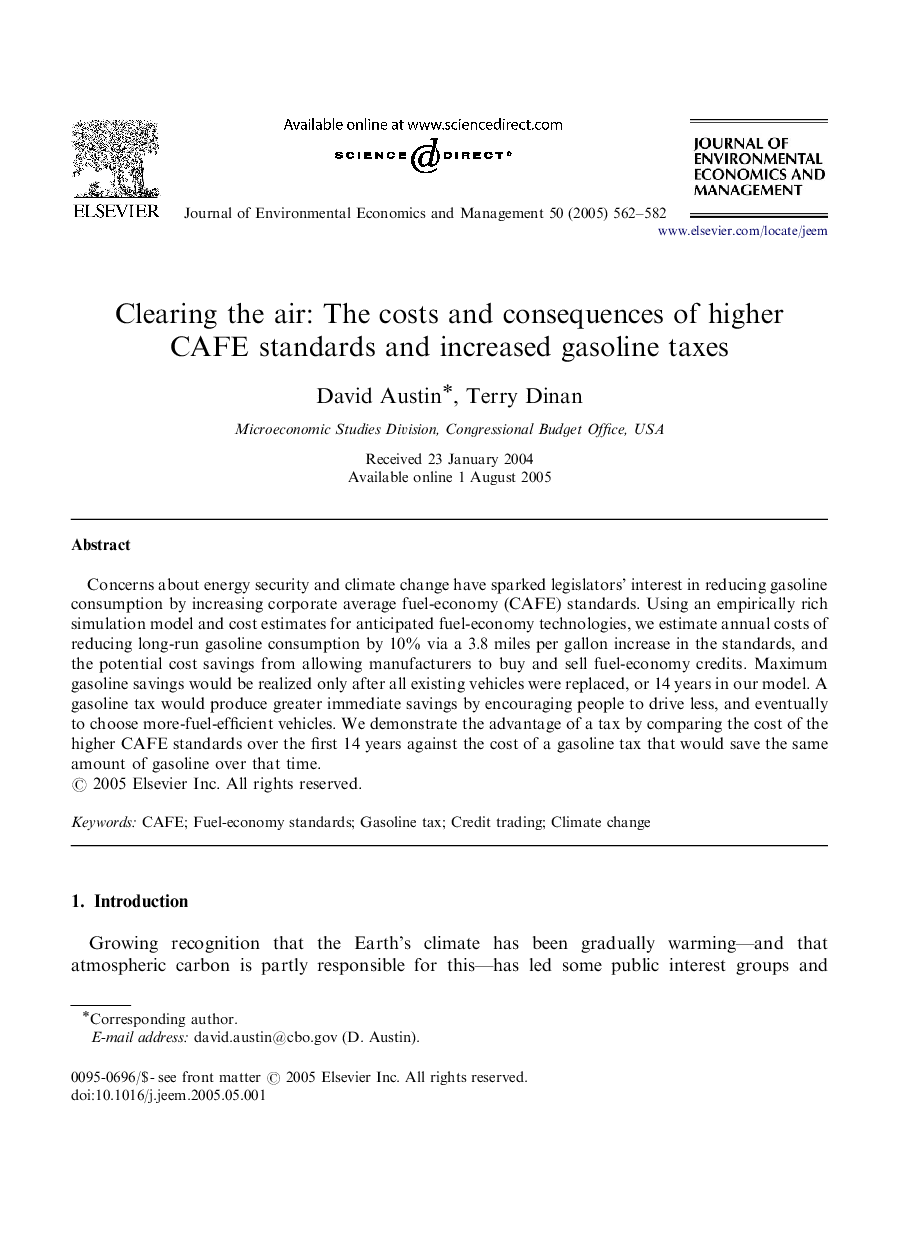| Article ID | Journal | Published Year | Pages | File Type |
|---|---|---|---|---|
| 9726498 | Journal of Environmental Economics and Management | 2005 | 21 Pages |
Abstract
Concerns about energy security and climate change have sparked legislators' interest in reducing gasoline consumption by increasing corporate average fuel-economy (CAFE) standards. Using an empirically rich simulation model and cost estimates for anticipated fuel-economy technologies, we estimate annual costs of reducing long-run gasoline consumption by 10% via a 3.8 miles per gallon increase in the standards, and the potential cost savings from allowing manufacturers to buy and sell fuel-economy credits. Maximum gasoline savings would be realized only after all existing vehicles were replaced, or 14 years in our model. A gasoline tax would produce greater immediate savings by encouraging people to drive less, and eventually to choose more-fuel-efficient vehicles. We demonstrate the advantage of a tax by comparing the cost of the higher CAFE standards over the first 14 years against the cost of a gasoline tax that would save the same amount of gasoline over that time.
Keywords
Related Topics
Social Sciences and Humanities
Economics, Econometrics and Finance
Economics and Econometrics
Authors
David Austin, Terry Dinan,
